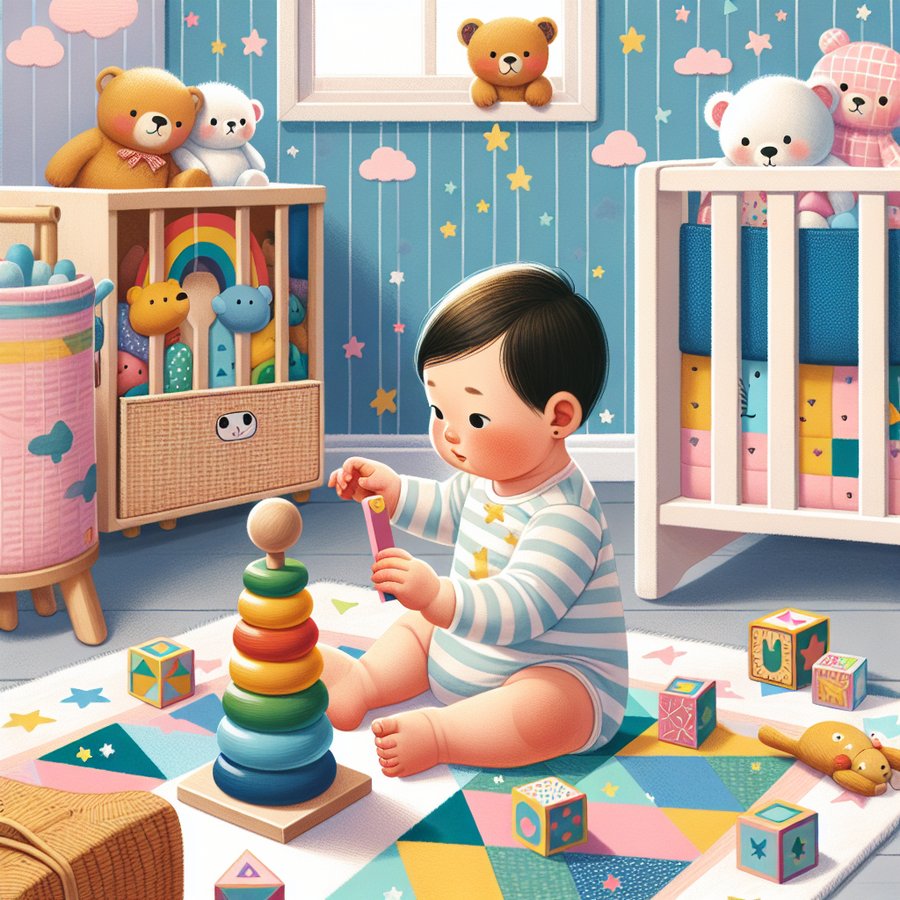Encouraging independent play in a 1-year-old is not just about giving parents a brief period of respite; it’s a crucial stepping stone in a child’s development, fostering independence, creativity, and self-confidence. From the moment they start to crawl and explore, children embark on a journey of self-discovery and learning. This article will guide you on how to effectively nurture your child’s ability to play independently, providing them with the tools to thrive both emotionally and intellectually.
Understanding the Importance of Independent Play
Independent play is more than just a child playing alone; it’s about them engaging in an activity that stimulates their senses, sparks their imagination, and encourages problem-solving skills without constant adult intervention. Research has shown that it plays a vital role in the cognitive and emotional development of children, allowing them to explore their environment at their own pace and on their own terms.
For 1-year-olds, who are at a crucial stage of development, finding joy in solitary play can also boost their language skills, fine and gross motor development, and social understanding. It teaches resilience, as they learn to navigate challenges and frustrations independently. Encouraging independent play in a 1-year-old is an investment in their holistic growth.
Creating a Safe and Stimulating Environment
One of the first steps to encouraging independent play is to create an environment that is safe for exploration and rich in opportunities for engagement. This means child-proofing your space to ensure there are no hazards and providing a variety of toys and materials that are age-appropriate and engaging. Incorporating toys that support developmental milestones can offer your child a range of sensory experiences, from soft toys with different textures to puzzles that challenge their problem-solving skills.
Moreover, setting up specific play areas within your home can help your child understand that there are designated spaces for play, making the transition to independent play easier. These areas should be free of distractions and equipped with materials that encourage creative expression, such as blocks, art supplies, and books. For more ideas, consider visiting Setting Up a Developmentally Stimulating Play Area at Home.
Encouraging Independent Play in a 1-Year-Old
Starting the journey towards independent play with your 1-year-old might seem daunting, but with patience and consistency, you can gradually introduce them to the joy of playing on their own. Begin by sitting with your child and engaging in a play activity together. Slowly, reduce your involvement by observing more and participating less, allowing your child to take the lead. This subtle shift encourages them to make decisions and explore independently while knowing you’re still close by for support.
Additionally, it’s important to recognize and celebrate their efforts towards independent play. Even short periods of solo play are significant achievements worth acknowledging. Encourage their exploration by expressing interest in their play without directing it. For example, if they show you a drawing, praise their creativity instead of suggesting additions. This reinforces their confidence in their abilities and their enjoyment in solitary activities. For more on boosting your child’s self-esteem through play, see Building a Reading Routine for Language and Emotional Development.
In conclusion, encouraging independent play in a 1-year-old is a multifaceted approach that involves understanding the benefits, creating an engaging environment, and gently guiding your child towards enjoying their own company. With patience and the right strategies, you can lay the foundation for a lifetime of independent exploration and learning. Remember, every child is unique, and what works for one may not work for another. The key is to be patient, observant, and responsive to your child’s needs and interests.
As you embark on this journey, keep in mind that fostering independence doesn’t mean leaving your child to figure everything out on their own. It’s about providing them with the space to grow while ensuring they know you’re always there to support them. For more insights into nurturing your child’s development, explore our extensive library of resources, such as tips on Games to Encourage Cognitive Development in a 1-Year-Old and advice on Understanding and Promoting Gross Motor Skill Development in Toddlers. Together, we can create a nurturing environment that celebrates every milestone in your child’s journey of growth.













